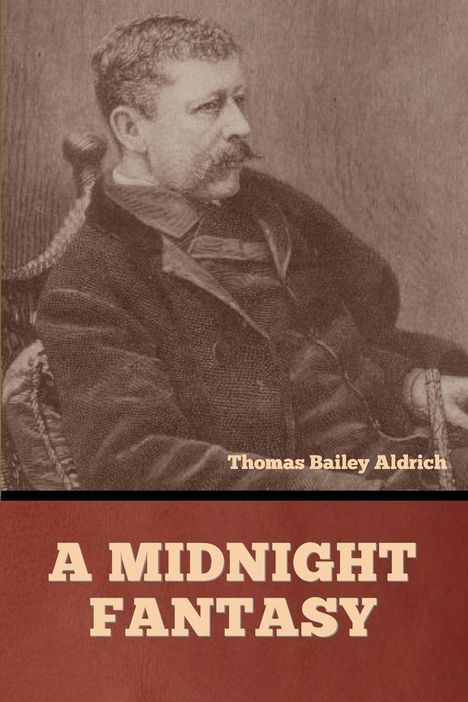Thomas Bailey Aldrich: A Midnight Fantasy, Kartoniert / Broschiert
A Midnight Fantasy
(soweit verfügbar beim Lieferanten)
- Verlag:
- Bibliotech Press, 09/2025
- Einband:
- Kartoniert / Broschiert
- Sprache:
- Englisch
- ISBN-13:
- 9798897732449
- Artikelnummer:
- 12456386
- Umfang:
- 108 Seiten
- Gewicht:
- 189 g
- Maße:
- 229 x 152 mm
- Stärke:
- 7 mm
- Erscheinungstermin:
- 4.9.2025
- Hinweis
-
Achtung: Artikel ist nicht in deutscher Sprache!
Klappentext
In A Midnight Fantasy, the narrator wanders through the quiet streets of Boston late at night, inspired by a recent performance of Romeo and Juliet. Lost in thought, he imagines an alternate reality where Shakespeare's tragic characters-like Hamlet and Juliet-escape their fates. In his fantasy, Hamlet travels to Italy, attends the Capulet ball, and falls in love with Juliet. Instead of tragedy, the two share a tender and peaceful romance. The story blends real-world solitude with a dreamy reimagining of classic literature, exploring the power of imagination and the human desire for happier endings.
About the Author Thomas Bailey Aldrich (November 11, 1836 - March 19, 1907) was an American writer, poet, critic, and editor. He is notable for his long editorship of The Atlantic Monthly, during which he published writers including Charles W. Chesnutt. He was also known for his semi-autobiographical book The Story of a Bad Boy, which established the "bad boy's book" subgenre in nineteenth-century American literature, and for his poetry.
Aldrich wrote both in prose and verse. He was well known for his form in poetry. His successive volumes of verse, chiefly The Ballad of Babie Bell (1856), Pampinea, and Other Poems (1861), Cloth of Gold (1874), Flower and Thorn (1876), Friar Jerome's Beautiful Book (1881), Mercedes and Later Lyrics (1883), Wyndham Towers (1889), and the collected editions of 1865, 1882, 1897 and 1900, showed him to be a poet of lyrical skill and light touch. Critics believed him to show the influence of Robert Herrick.
He was a critic of the dialect verse that was popular at the time. In a 1900 letter referencing contemporary poet James Whitcomb Riley, he wrote, "The English language is too sacred a thing to be mutilated and vulgarized".
Aldrich's longer narrative or dramatic poems were not as successful. Notable work includes such lyrics as "Hesperides", "When the Sultan Goes to Ispahan", "Before the Rain", "Nameless Pain", "The Tragedy", "Seadrift", "Tiger Lilies", "The One White Rose", "Palabras Cariñosas", "Destiny", and the eight-line poem "Identity". (wikipedia. org)

